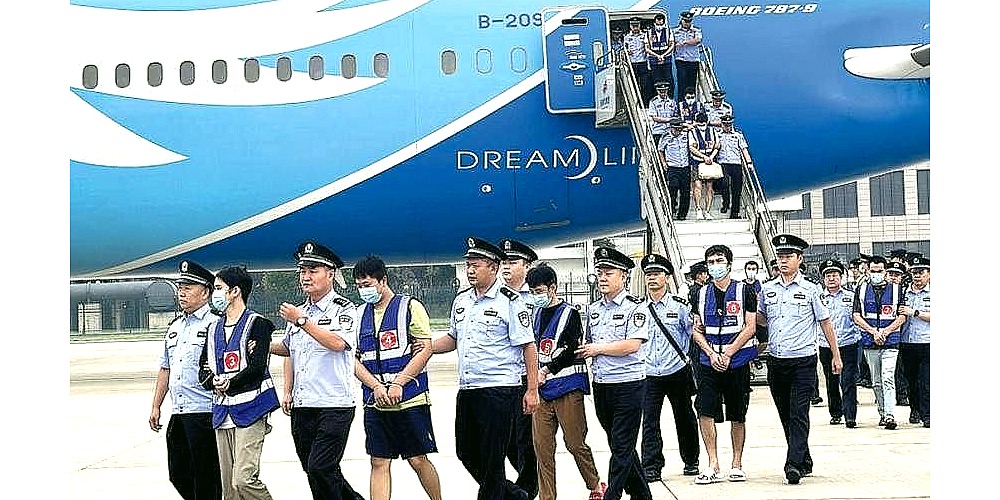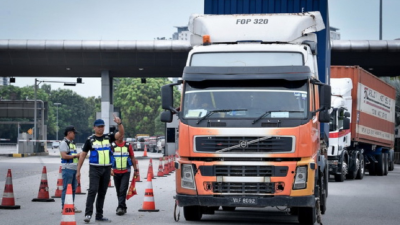
Criminal syndicates from China have been spreading their tentacles across the Asia-Pacific region, setting up bases in countries like the Philippines, Australia and Singapore to launder their ill-gotten gains.
In February 2023, police in Australia arrested nine Chinese nationals in a series of raids across Sydney. The gang in Australia is said to have operated a shadow banking system for criminal groups.
Among those arrested was Steven Xin, the Australia-based business partner of Macau gambling kingpin Alvin Chau, who was jailed in China for 18 years in January for illegal gaming and other crimes.
Mr. Jason Tower, the country director for the Myanmar program at the United States Institute of Peace (USIP), said these criminal networks are believed to have billions in capital
USIP is an American federal institution that was established by the US Congress in 1984.
Mr. Tower told The Straits Times: “It’s reached the point where they control territory in Myanmar through partnerships they have with border guard forces under the Myanmar Army, and with other militias there.”
He added that these criminal organizations also operate out of Cambodia and Laos, and are targeting financial hubs across the world, including London, Dubai and Singapore.
“You’re seeing the reach of these Chinese criminal networks that have been operating in South-east Asia now extend across the world. They’ve been involved in trafficking people from more than 50 different countries into the region,” said Mr. Tower.
In August, the United Nations said in a report that hundreds of thousands of people are being trafficked by criminal gangs and forced to work in scam centers and other illegal online operations that have sprung up across Southeast Asia.
Up till 2019, these criminal groups mainly offered offshore gambling services.
But with crackdowns and restrictions after the Covid-19 pandemic, their focus shifted to large-scale scam operations, said Mr. Tower, who co-authored a report tracing the history of these criminal groups.
He said the syndicates first moved to the Philippines in the early 2010s, and there, they set up online gambling sites and casinos aimed at attracting fellow Chinese countrymen. Online gambling is illegal in China.
After Chinese and Philippine law enforcement began a crackdown on illegal online casinos in 2016, the operators fled and set up shop in the coastal city of Sihanoukville in Cambodia.
From late 2017 until the middle of 2019, Cambodia essentially did nothing to regulate gambling in Sihanoukville, and even licensed it.
But chaos soon descended upon the city, when Chinese gangs committed violent crimes while providing security to the casinos and enforcing payment from indebted players.
In a chilling video in May 2019 that showed the extent of their influence, a Chinese gang leader with cigarette in hand, surrounded by shirtless and tattooed men, issued a warning to other groups.
“In the next three years, we Chongqing people will have the final say about whether Sihanoukville is stable or not,” declared the gang leader in Mandarin.
On Aug 18, 2019, Cambodia’s then Prime Minister Hun Sen issued a directive banning online gambling. By October that year, many of the gangs had left for Myanmar.
The report by Mr. Tower highlighted three cities of concern in Myanmar that operate in special economic zones (SEZs): Saixigang Industrial Zone, Huanya International City and Yatai International City in Myawaddy township in Karen state.
Pitched as megacities complete with high-end housing, casinos and international airports, the reality is that these “spinach cities” – the word “spinach” in Mandarin sounds similar to gambling – host unregulated gambling operations.
Saixigang Industrial Zone was built by investments from “Broken Tooth” Wan Kuok-Koi, a triad leader who was sentenced to 13 years’ jail in Macau in 1999 for money laundering, criminal association and attempted murder.
After his release in 2012, Wan founded the World Hongmen History and Culture Association, and in 2013 established the now-dissolved Dongmei Group, which was a key investor in Saixigang Industrial Zone.
In 2020, the US Treasury slapped sanctions on Wan, alleging he was expanding his criminal activities throughout South-east Asia and using Hongmen as a front for criminal activities.
The Huanya International City project is apparently owned by Chinese-Thai Yu Jianjun. The Karen state government demanded that construction on the project be halted in 2020 as government approval had not been obtained, but the project is reportedly still ongoing.
Joint operations
Chinese law enforcement agencies have recently stepped up cooperation with their South-east Asian counterparts to tackle transnational crime, including money laundering, human trafficking and cyberscams.
Professor Zachary Abuza, of the National War College in Washington, noted in a recent commentary on Radio Free Asia that Beijing has been taking action following reports of Chinese nationals falling prey to scams and other crimes.
“China’s proactive approach also reflects the fact that there are now enough Chinese citizens among the 120,000 trafficked people in Myanmar’s SEZs and the 100,000 in Cambodian scam centers that the authorities are being forced to act,” said Prof Abuza, who specializes in South-east Asian security issues.
In August 2022, the authorities in Thailand arrested China-born She Zhijiang, the owner of Yatai International City. The 41-year-old Cambodian is currently fighting deportation to China.
He has been linked to a vast network of companies worldwide – including in Britain – that were used to launder the billions he made since starting out as a small-time businessman in Hunan, China.
Prof Abuza said the information China provided led to arrests in Myanmar, Laos and Cambodia.
Mr. Tower said it is hard to estimate the total number of Chinese syndicates in the region.
Besides high-level players who run large compounds, there are many smaller crime syndicates that rent rooms in the same compounds to run their operations.
Earlier in September, Chinese law enforcement, working with Myanmar’s rebel United Wa State Army, raided 11 scam centers accused of swindling victims out of 120 million yuan (RM77 million).
In total, 269 people were arrested, including 186 Chinese nationals who were immediately deported to China.
The deportees include 21 ringleaders.
Xinhua news agency, citing a statement by China’s Ministry of Public Security, said Myanmar later transferred 1,207 suspects, including 41 fugitives, to China.
ADVERTISEMENT
ADVERTISEMENT








































